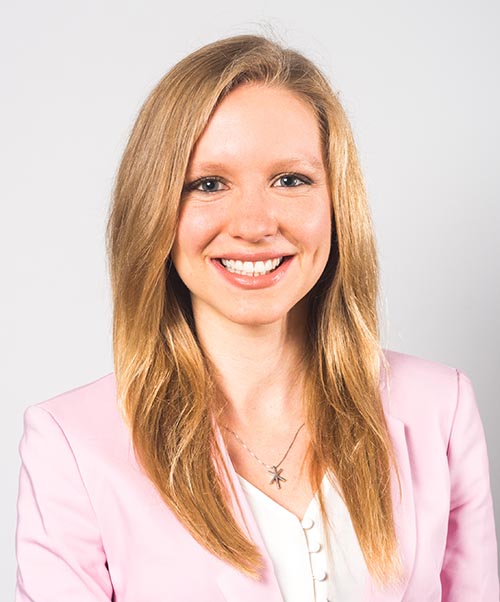Dr. Katie Brendli: Supporting greater outcomes

Dr. Katie Brendli is a data associate for the Yang Tan Institute (YTI) on Employment and Disability in the School of Industrial and Labor Relations at Cornell University. At the YTI, she supports the Autism Transition to Adulthood Initiative (ATTAIN) to explore factors that predict successful transitions to adulthood for young people with autism. Katie also develops curriculum and materials, conducts trainings, and provides technical assistance supporting content specialists on the Office of Special Education (OSE) Educational Partnership regional teams, as a member of the New York State Education Department’s Special Education Technical Assistance Partnership for Data (TAP for Data). Katie received her Ph.D. in Education, with a concentration in Special Education and Disability Policy/Leadership from the VCU School of Education in September 2020.
What drew you to the field of education?
I volunteered often in high school, where I provided direct support to my peers with autism and severe disabilities receiving the majority of their instruction in a self-contained setting. I especially bonded with one of my peers, to whom I would read stories aloud every morning. She had difficulty with long-term memory and could never remember my name, until one of my last days volunteering in the classroom before my graduation. She has a special place in my heart, as do the rest of the seven students who received instruction in Mrs. Fera’s class. Mrs. Fera was the special education teacher and along with the two instructional assistants, were incredibly supportive of their students’ individualized strengths, preferences and interests, and sought ways to help their students feel included and accepted by their peers without disabilities.
However, I also observed that the students were often not included. I questioned whether this was because of misconceptions and stigma, a lack of awareness, perhaps the school culture, something else, or all of the above. Even as a high school student, I witnessed so many barriers to inclusion and the need to better understand how we as a society can change our perceptions from only seeing people’s deficits to valuing the unique contributions we all bring to the community.
Is there anyone who inspired you to pursue study in SPED & Disability Policy/Leadership?
While at James Madison, I became involved with the Best Buddies program, which supports one-to-one friendships with peers with and without disabilities. My best buddy is 59 years old, and she is a wife, mother, student, employee, church goer, and lover of the Spice Girls. She also has developmental disabilities. I’ve learned a lot from my best buddy over the years, and she is one of the main reasons I initially became interested in work that supports fostering greater transition outcomes for people with developmental disabilities.
Also, during my master’s program, I received the opportunity to teach for a summer in the Dominican Republic, where I taught Haitian children with disabilities in one-room schoolhouses on sugar-cane plantations, and also in a separate school for children with severe disabilities in La Romana. Based on this experience, and others, I personally felt that there was so much more I still needed to learn and do to encourage greater opportunities, inclusive experiences, and outcomes for people with disabilities on an international scale. My former professor, Dr. Raymond Rodriguez, also traveled to the Dominican Republic, and he was someone who believed in me and encouraged me to pursue my doctoral degree.
Why VCU SOE for your Ph.D.?
I chose VCU SOE for many reasons, including its core values and mission to promote equity, diversity, and inclusion. VCU is also an R1 university that not only produces high quality research, but strives to bridge the gaps between research, policy and practice in order to foster greater PK-12 experiences and outcomes for diverse youth. Thirdly, VCU SOE is comprised of a very knowledgeable and passionate faculty, staff, and student body, including several experts in one of my main research interests and passions, which is supporting greater postsecondary transitions and outcomes for people with intellectual and developmental disabilities.
What impressed you most about your program?
Going to VCU for my Ph.D. program was one of the best decisions of my life. I have learned so much from my former instructors, have made lifelong friends, have a network of research collaborators (like my fellow Teacher Retention and Transition lab members), and have a support system of faculty and students who all want the best for one another. VCU SOE has exemplary faculty and staff, who are both supportive and willing to provide opportunities for collaboration in their research projects. During my doctoral program, I also received exceptional advising from Dr. LaRon Scott, who encouraged and challenged me both professionally and personally.
How did your Ph.D. program help prepare you for your current job at Cornell?
VCU provided me with extensive well-rounded experiences and opportunities for growth and collaboration. I was able to be involved in multiple research projects, provide service to the community, engage in internships that aligned with my preferences and interests, and take on leadership roles from the local to the international level.